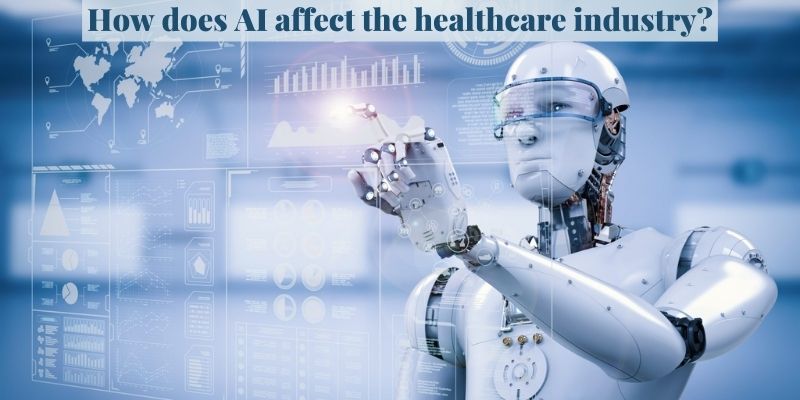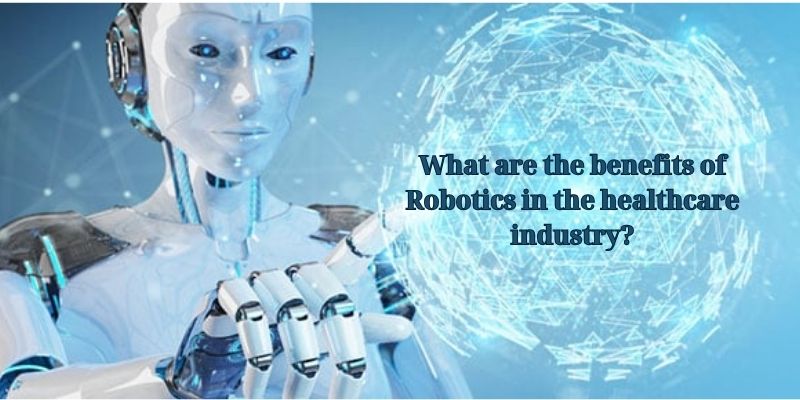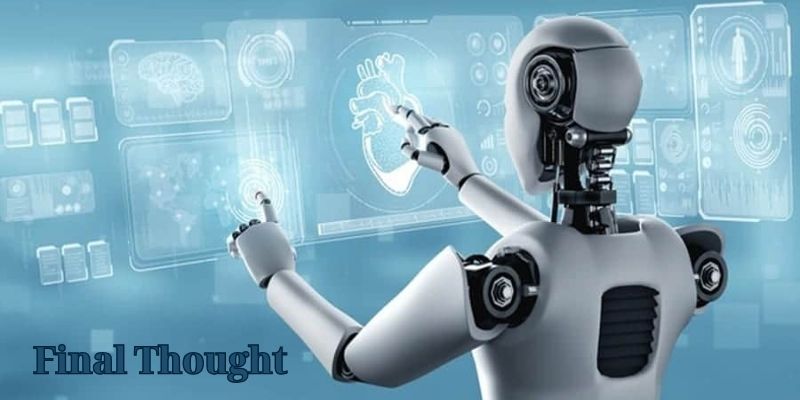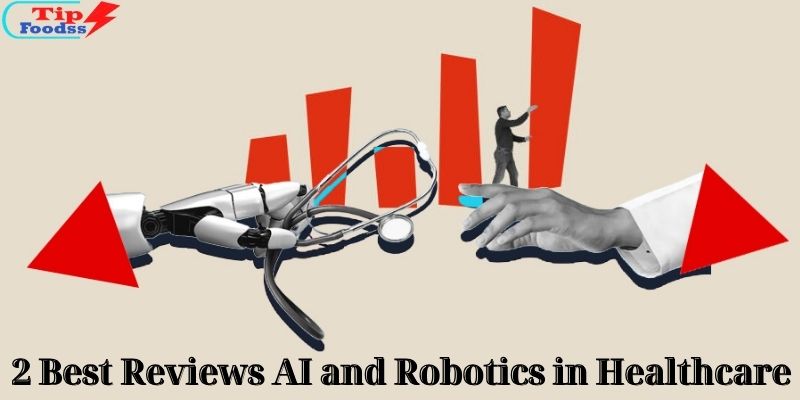2 Best Reviews AI and Robotics in Healthcare
AI and robotics in healthcare is sweeping the world and has a significant impact on the healthcare sector as well.
When it comes to patient care, AI greatly facilitates physicians’ ability to move forward with new difficulties. Although artificial intelligence (AI) has been attempting to identify a number of diseases for many years, it still falls short of human capability.
Medical robotics, also referred to as the employment of robots in the healthcare or medical sector, has recently gained popularity. Robotics in healthcare has grown more commonplace as a result of technological advancements, which has many advantages for both patients and healthcare professionals. The importance of AI and robotics in healthcare and how it advances the field globally tipfoodss.com will have been highlighted in this blog.
Contents
How does AI affect the healthcare industry? – AI and robotics in healthcare

Data analysis
AI applications frequently assist in the analysis of medical data. The methodologies may differ since there are primarily 2 types of health data available.
Information from structured data is frequently derived from scientific or medical research. Unstructured data is more concerned with things like human language, imagery, etc. All of this information is charted, translated, and finalized using some AI technologies.
Improved management
This is what gives AI its broad application in patient care. Online doctors are widespread today, and consulting a doctor electronically is now commonplace. Platforms supported by AI apps make it simple to connect with physicians worldwide and receive treatment in a matter of minutes.
AI management technologies also cut down on expenses associated with invoicing, clinical documentation, and medical record administration in hospitals. In other words, by fostering profitable conditions, artificial intelligence saves time and money for both people and hospitals.
Data Matching
When discussing AI, it’s important to also bring up Machine Learning (ML), another area of the technology that finds extensive use in healthcare. Data from various networks are matched and combined using ML applications. They also reduce human labor by assisting in the detection of potential kicks and labelling bags.
What are the benefits of Robotics in the healthcare industry? – AI and robotics in healthcare
Introduction: As technology develops, robotics in healthcare is becoming more widespread and offers both patients and healthcare professionals a number of advantages. Robotics in the healthcare industry makes it possible to provide high-quality patient care, efficient clinical processes, and a safe working environment for healthcare personnel.

-
High-quality health care
Robotic medical assistants can help with minimally invasive procedures, tailored and regular monitoring for patients with chronic diseases, intelligent therapies, and social engagement for the elderly. Robotic nurses are able to perform tasks that would otherwise exhaust a human nurse. Nurse robots will take care of less important or tedious tasks, freeing up nurses and caregivers to focus on more important tasks while showing compassion for patients and promoting their long-term wellness.
-
Work Environment Safety
When heavy lifting, such as moving hospital beds or lifting patients, is done by nurse robots, healthcare workers are no longer at risk for certain occupational hazards. AMRs are used to transport supplies and linens in hospitals where there is a potential for disease exposure to safeguard the security of medical staff. Robotic cleaning and disinfection technologies lessen hospital-acquired illnesses while reducing the transmission of infections.
-
Simplified Clinical Workflows
Thanks to autonomous mobile robots (AMRs), the physical demands on human workers are reduced while yet delivering more dependable processes. These robots can help with staffing issues by keeping an eye on stocks and placing orders in a timely manner to ensure that supplies, equipment, and drugs are available where they are needed. Hospital rooms may be swiftly cleaned and made ready for new patients thanks to the cleaning and sanitizing of AMRs, freeing up staff members to focus on patient-centered, value-driven work.
-
Robotic Surgery using Surgical Robots
Robots now assist doctors in setting up the operating table and participate in procedures. Surgical robots help the process by allowing general surgeons to do surgery with the maximum level of accuracy. Additionally, when performing challenging surgical procedures, surgical robots allow surgeons greater control, flexibility, accuracy, and eyesight.
Because of the tiny incisions used during robotic surgery, infection rates have dropped and hospital stays have been reduced. Additionally, because they are less invasive, using robots in healthcare reduces blood loss, transfusions, and patient recovery time. The treatment will proceed more smoothly as a result, and the patients will suffer from less discomfort, scarring, and infection. Early discharge and quicker recuperation are advantageous to patients.
Final Thoughts – AI and robotics in healthcare
You’ve now gained a lot of knowledge about AI and robotics in healthcare and how it improves collaboration and access to healthcare. It’s crucial to recognize the function of AI and robotics in healthcare as online doctor consultations become the new norm for the era.

The use and capabilities of AI and robotics in healthcare are advancing daily as a result of their adoption in industries like healthcare and related professions. Today, difficult surgeries, clinical training, medication delivery, personal care, and many other tasks are performed by AI and robotics in healthcare.



